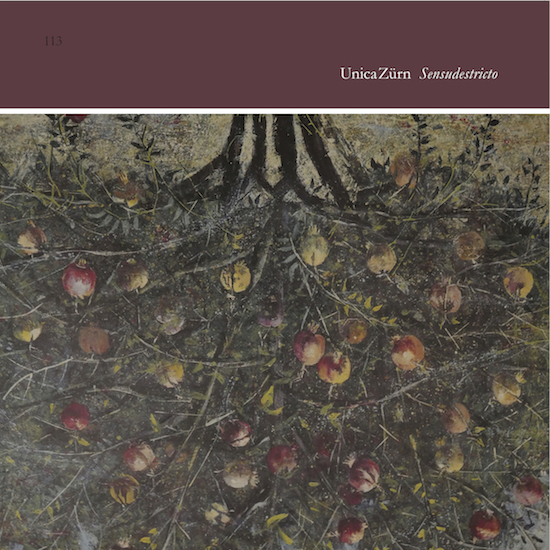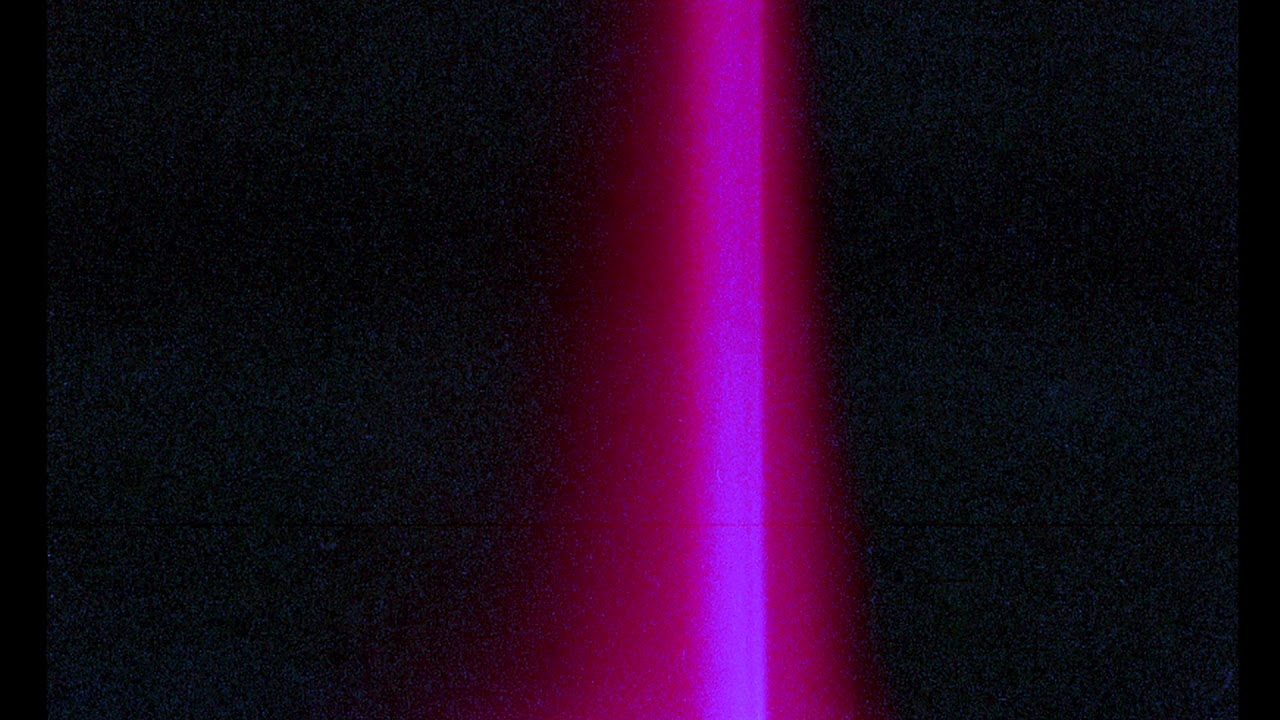There is no internet in the Rum Music Library. The labyrinth of listening rooms no longer links to the world wide web. Our disconnection, that leaves us bereft of browsing, severed from streaming and detached from downloading, was not determined by any political stance railing against the digital domain’s severe reduction of artists’ wages. Nor is our offline mode out of anger at the growing absence of artefact that sees our physically browsable shelves replaced by hard drives whose data remains hidden unless recalled. And the issue of fidelity no longer finds us bemoaning digital audio now that ‘high definition’ formats that can arguably surpass the resolutions of CD and vinyl (such as 24-bit/96 kHz wav and aiff files) are increasingly to hand. In fact, the accessibility, storage and quality considerations involved in maintaining a music library are almost entirely enhanced by the internet.
No, our enforced separation from cyberspace is entirely due to psychological reasons. It would seem the music the Library so cherishes can become inaudible when relegated to the background of another task. The very qualities we seek to recognise, conserve and catalogue – non-anticipatable phenomena, auditory illusions and strangely morphing textures – are barely discernible when not getting the best part of our attention. Sadly, it would seem the lure of the internet’s lucky dip is sufficiently strong to switch our synapses from focussing on the art in noise to filtering it out, so the Library’s pathways to the information superhighway have been closed.
Of course, this requires staff to download potential acquisitions at home or elsewhere. Meanwhile, such unprecedented concern over our attention levels has given rise to many voices requesting assistance with their physical health, anxiety levels, finances, and troublesome familial relations, lest they interfere with identifying the interference patterns in microtonal modulations.
Of course, levels of engagement are as much dependent on the art as they are on the auditor. So, it is with pleasure that we present the latest, most striking releases in our collection, whose sonorous details can best be sought offline.
Marja Ahti – Vegetal Negatives
(Hallow Ground)
For Vegetal Negatives Marja Ahti combines Fluxus-inspired artist Annea Lockwood’s approach to the “shared characteristics and sonic energy” of sounds with pataphysician René Daumal’s concept that “for each animal form there exists a corresponding vegetal form” whose unification “would restore the integrity of the cosmos”. Collaging field recordings with feedback, analog synths, a bowl gong and a harmonium, Vegetal Negatives coolly sits in an autonomous zone that lies between music and sound art.
‘Coastal Inversion’ bears a magical combination of gently extending sines and aquatic recordings. Tidal tones, and emanations from a woozy water-filled bowl form a palpable ritualistic space. This same serene approach – a tender yet determined sowing of sound – continues throughout but doesn’t always remain in organic pastures, like when ‘Rooftop Gardens’ has public transport announcements and the crank and clunk of brakes cut into bird song before a bold, loose rhythm is born of clangorous metal.
As Vegetal Negatives doesn’t obscure the sources of the field recordings, their sense of everyday environments threads through the whole album. Despite this, there remains a sparkling sense of mystery, as if Ahti’s compositions somehow cleave through reality to glimpse a parallel world.
Alexandra Spence – Waking, She Heard The Fluttering
(Room40)
On Waking, She Heard The Fluttering Alexandra Spence also creates audio collages with field recordings and electronic tones. In the accompanying notes she reveals her process to be texture-led, beginning with “a sound that I like [from which] the concept will reveal itself [using] sound as a form of phenomenological learning”. As such, the nine pieces presented here are something of an audio diary, abstractedly marking the places and moods the artist has experienced over the past two years or so.
Right from the outset subtle movements, whispers and a stirred air are foregrounded, gilded by soft sines; together they seductively draw the listener into Spence’s private world. Indeed, pieces like ‘Bodyscan’ and ‘Flora (For A Friend)’ feature recordings of words mouthed but not voiced, detectable just by the stickiness of the narrator’s saliva, placing one intimately close to the recordist.
Throughout, there’s a real flow to the otherwise disparate sounds, sending any objective significance (such as traffic, a news reader or church bells) into purely subjective, introspective realms. It is topped off perfectly by the closing piece, ‘Sky And Sea Were Indistinguishable’, whose cautious tones are left free to roam beyond ‘the field’. They arc beautifully across the listening space and ultimately fade so slowly that their end is indistinguishable, sealing the communion between artist and listener.
UnicaZürn – Sensudestricto
(Touch)
Following the arch sculptural forms of 2017’s Transpandorem, UnicaZürn’s first release for Touch, Sensudestricto sees the duo of Stephen Thrower and David Knight return to the communion of electro-acoustic, prog and kosmische music found on their earliest releases from 2009.
Built around their core instrumentation of analogue synths, mellotron, piano, guitar and saxophone, Thrower and Knight set the controls ‘For The Dark Planets’ as pulsing synths writhe sinuously, ultimately absorbing melancholic reeds. The psychedelic sojourns of BBC Radiophonic Workshop, Cluster and Coil (for whom Thrower served from 1987 to 1992) all come to mind before the end of the journey.
But it is the blend that is perhaps UnicaZürn’s most potent property. Sensudestricto bears both abstruse and accessible sonic matter that are somehow drawn together synergistically. The darkness in the details is an undeniable pleasure to behold yet is balanced with equal amounts of light to lift the soul.
With the accompanying notes kicking off by remarking, “Has there ever been a better time to fuck off to the stars?”, and a title suggesting a sense of unsheathing or stripping off, it would seem UnicaZürn are offering a means of shedding the escalating fractiousness of modern life. And a welcoming heavy dose of respite is what Sensudestricto unequivocally provides.
Julio “Chocolate” Algendones – Peru’s Master Percussionist
(Buh Records)
There is a dearth of drums in the Rum Music Library. It is not known why – perhaps drumming becomes a casualty of shying away from popular genre, given that a rhythmic style is more often the primary classifying factor. So, it is with great relief we find this reissue by Buh Records of Julio “Chocolate” Algendones’ LP – Peru’s Master Percussionist.
Algendones was born in 1934 and lived in Lima until he passed away in 2004. By the time this album was first released in 1991 he was the percussionist with Perujazz and toured the world with their blend of Afro-Peruvian styles. They briefly appear here on the last of four tracks, but the rest of the time we’re treated to the unaccompanied sounds of cajóns (wooden boxes), congas, seeds, and kalimbas.
In fact, the whole of the first side is just Chocolate playing solo, yet the sounds are full bodied. Apparently influenced by Santeria rituals whose shamans would use percussion to mediate between Earth and the spirit world, Chocolate’s rhythms start out modestly then gain kaleidoscopic complexities, at times hypnotically so. Here the fact of drumming uncannily drops away and one can absorb the rich tonal and textural dimensions that, at times, are like filtered arpeggiations emerging and submerging with trance-inducing fluidity.
Peru’s Master Percussionist is an essential document of transformational music, liberating ears brainwashed by regularity, and proving that, in the right hands, complexity can be conjured from sparsity.
Qasim Naqvi – Teenages
(Erased Tapes)
When not on drumming duties for modern minimalists Dawn Of MIDI, Qasim Naqvi’s compositions have hitherto been forged for visual media, from TV shows through video installations to soundtracks for paintings. For Teenages, however, there is no such synesthetics, just synths – an analog modular system allowed to behave “almost autonomously” by the composer. The aim, like an inverse of Dawn Of MIDI’s acoustic take on electronic composition, is to arrive at a live performance displaying the “natural behaviour of the machine”.
The first side has a series of five preliminary pieces as Naqvi studiously explores the system. Its relatively primitive tones remind of the pioneering work of composers like Morton Subotnik or Laurie Spiegel yet move around in modern modes. Right from the outset Naqvi is encouraging his machines to throb and pulse polyrhythmically and bring their inherent instabilities to the fore. While the 18-minute title piece, recorded live and without any post-production, has Naqvi’s synths swelling in clusters like an orchestral string section. Before long their bright, welcoming tones are chopped percussively, with a fluid granularity, as rhythms spin through varying speeds.
Unlike many contemporary modular synth releases, Teenages has arrived at an original sound, combining 20th Century experimental composition with 21st Century notions of artificial intelligence.
Jim Haynes – Inconclusive
(The Helen Scarsdale Agency / Audio. Visuals. Atmosphere.)
Rhythm is surprisingly at the heart of Inconclusive, the latest from the sole occupant of the estimable Helen Scarsdale Agency. This makes quite a difference to his earlier work, such as 2017’s appropriately named Electrical Injuries that demonstrated beauty in the unbridled energy of corrosive blasts by isolating the listener amid its bleak tundra. Here, however, although still bearing the unmistakable hues of Haynes’ caustic industrial processes, their inexorable agency can be admired from within Inconclusive’s protective rhythmic shield.
‘And Then, Theranos’ promotes a particularly biomechanical pulse, reminiscent of the super-spare funk of Pan Sonic’s electrical discharges, as it pugilistically parts its way through metallic howling on a wind of nebulous noise. While the machine-cut voice fragments of ‘Through Diana’s Stare’, coupled with the ominous buzz emitting from its beating engine, bring the death industrial dystopias of Himukalt to mind, whose debut Haynes released in 2016.
Whether sequenced or contingent on chance collisions, it is perhaps the laying down of some sort of groove that affords a sense of travel, making Haynes artful, abrading textures feel safer to sample. That said, the thrill and marvel of hazardous environments are never diminished by Inconclusive’s ride-thru rhythms.
Phew / Oren Ambarchi / Jim O’Rourke – Patience Soup
(Black Truffle)
Patience Soup is an unedited recording of the complete performance by these seasoned improvisers at CCA Kitakyushu in 2015. While Oren Ambarchi and Jim O’Rourke have played together many times (often with Keiji Haino), and O’Rourke contributed bass and synth to Phew’s Five Finger Discount LP of 2010, this is the only time this trio has come together.
Live recordings destined for release can tend to be taken from mixing desks to get the cleanest take of a show, but Patience Soup is “presented in atmosphere-enhancing room fidelity” as if recognising the resonance of the space as a fourth performer. The sounds the players put forward initially feel as if they are testing this air – O’Rourke’s gorgeous synth probes, Ambarchi’s guitar shimmers out of a Leslie cabinet while Phew’s languid inner-voice-made-audible quests.
On either side of the midpoint crescendo the players often resist the temptation to fill the room. Instead, they imprint the air with evaporating streaks of sound that suggest subtle shifts in reality, until the end section that sees a resplendent melding of the trio before the charged air powers down and the dust settles, as if a desired entity had been invoked.
Tracklist For The Rum Music Mix April 2019
00:00-00:20 Intro (includes an excerpt from ‘Music of the Spheres’ – Johanna Beyer / 1938),br>00:16-05:58 Rooftop Gardens – Marja Ahti (from Vegetal Negatives / Hallow Ground 2019)
05:52-12:58 Sky and Sea were Indistinguishable – Alexandra Spence (from Waking, She Heard the Fluttering / Room40 2019)
12:12-18:10 A Gulp of Moss, a Breath of Stone (excerpt) – UnicaZürn (from Sensudestricto / Touch 2019)
16:42-25:28 Añi-Añi Manola (excerpt) – Julio “Chocolate” Algendones (from Peru’s Master Percussionist / Buh Records 2019)
24:42-29:18 Teenages (excerpt) – Qasim Naqvi (from Teenages / Erased Tapes 2019)
29:18-35:06 and then, theranos – Jim Haynes (from Inconclusive / The Helen Scarsdale Agency/Audio. Visuals. Atmosphere. 2019)
35:04-43:02 Patience Soup part 2 (excerpt) – Phew / Oren Ambarchi / Jim O’Rourke (from Patience Soup / Black Truffle 2019)
42:54-43:12 Outro (includes an excerpt from ‘Music of the Spheres’ – Johanna Beyer / 1938)




